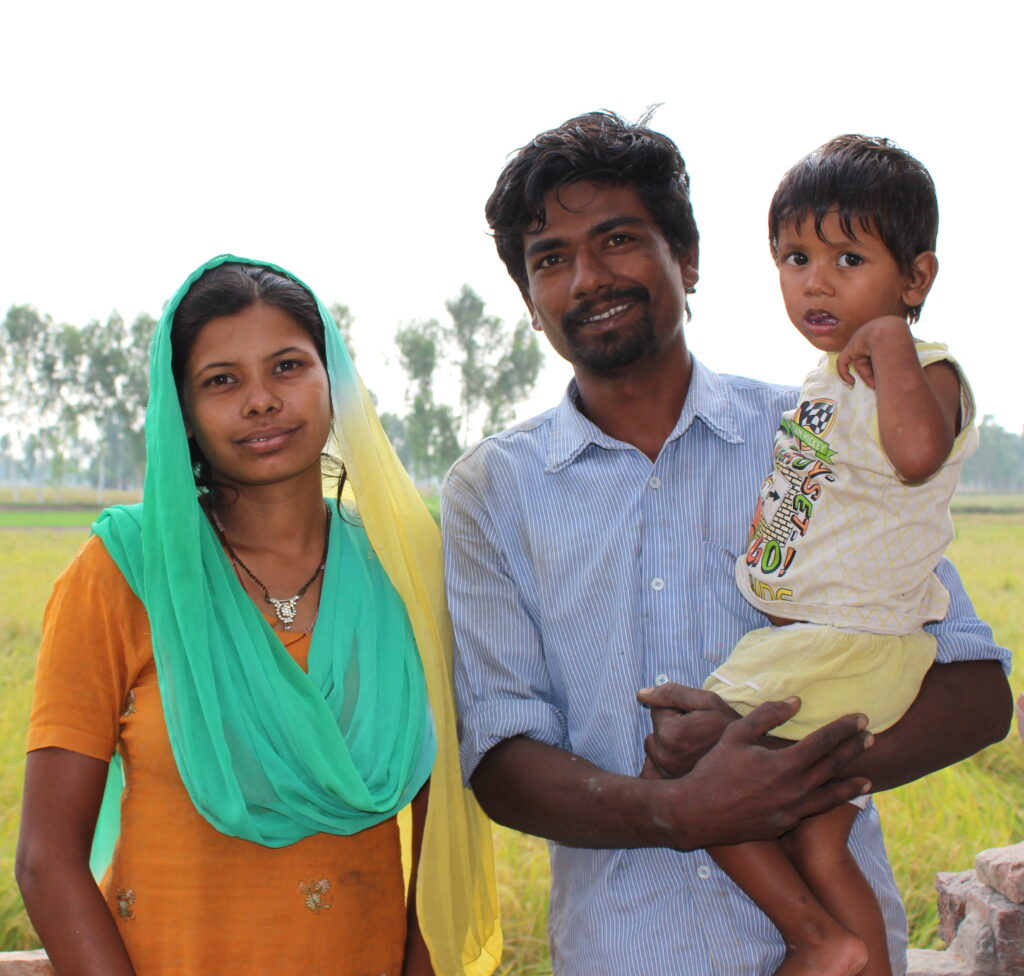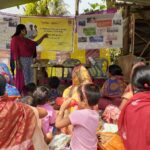Community Development- From Margin to Many
Promoting Healthy Communities in Rural India
Health is a state of complete physical, mental and social well-being and not just the absence of disease or infirmity- (World Health Organisation WHO). A person is healthy if he does not suffer from any illness in body, mind and spirit. Health also has a central place in SDG[1] 3 of the United Nations – “Ensure healthy lives and promote well-being for all at all ages”.
In India Malnutrition is a serious issue pulling health indicator down. This is prevalent especially among children and often gets unnoticed if proper monitoring is not done. Poverty also decreases people’s ability to get enough food leading to malnutrition which leads to even more poverty by limiting people’s ability to work. And most of the time, at household level, children are at the brink of suffering more due to poor health conditions. Malnutrition is closely related to the food intake. [2]“Food intake is not only a result of food availability but also of dietary quality, quantity and feeding practices. Food consumption is one of the most important variables that influence nutritional status of adult and children. The linkage between diet and health is an inescapable fact of life; dietary choices are seen as maintaining, or actually enhancing, an individual’s resistance to disease or as promoting the efficiency or durability of the body.”
The nucleus of a healthy family is the lady of the house. Her good health means a healthy motherhood, healthy children and further in life- a productive and contributing human being. Women are central to the health of their families. They contribute directly to the nutrition by assisting in production, processing and selection of foods for family consumption. Thus building their knowledge and understanding on nutrition is important for promoting healthy lifestyle at home. We need to change mindsets to reduce intergenerational malnutrition because undernourished/less aware adolescent girls make undernourished mothers leading to low birth-weight babies who may suffer later in life due to poor health. Parents as caretakers of young children, also have the opportunity to teach them healthy behaviors and information, such as the importance of hygienic practices, which can affect later health outcomes.
Thus our Project- Community Development: From Margin to Many focuses on addressing malnutrition while looking at larger issue of hunger. We are working to improve the nutritional situation of young children and women of reproductive age and to increase income of small farmers in intervention areas through natural integrated farming. Our focus is on nutrition within the broader perspective of ending hunger as the direct intervention issue while sustaining the work on education and WASH achieved in existing project. We are helping communities to utilize the benefits of health services of the Government schemes like Integrated Child Development Services (ICDS) programme so that it has an intensive focus on the issue of nutrition.
Integrated Child Development Services (ICDS) Scheme is one of the flagship programmes of the Government of India and represents one of the world’s largest and unique programmes for early childhood care and development. Programme specifically targets the children in 0-6 years of age group, pregnant mothers and lactating mothers Along with providing pre-school education, programme focuses specifically on the issue of malnutrition through monitoring, provision of supplementary nutrition and awareness activities.
Along with supplementary nutrition provided through ICDS, we are also focusing to support communities to build nutrition gardens that can provide valuable diversity of micronutrients through constant supply of fruits and vegetables sufficient to meet the family’s nutritional requirements. Thus, nutrition gardens can prove to be a sustainable model for providing food security and diversity to combat malnutrition at the household or community level.
At CNI SBSS we are committed to proclaim the Good News of Christ by working with the people and for the people, in practical ways. To make them independent and self-sufficient in taking care of themselves, their families and further contribute to developing their communities, without the fear or prejudice against caste, gender, ethnicity or religion.
[1] The Sustainable Development Goals (SDGs) or the “2030 Agenda” is the universal call for action for better health, end poverty and ensure that all people enjoy peace and prosperity.
[2] Nutritional Status of Children and Adults in India: Alarming Revelations from NFHS-4 by Mohammad Akram from Man in India – January 2017



